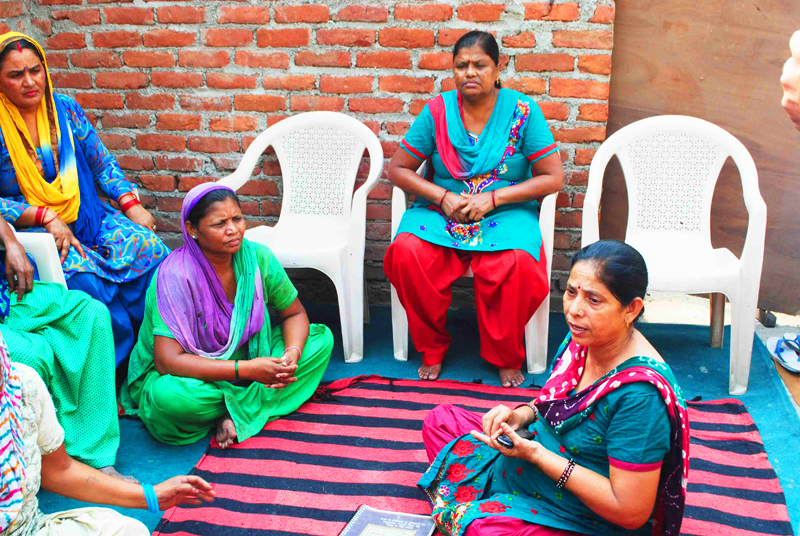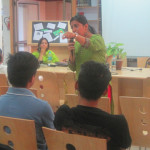Recently, I visited Centre for Social Research’s Chhatarpur Crisis Management Centre where Counsellors help women victims of Gender Based Violence and Intimate Partner Violence, explaining the most basic gender etiquette to people on an everyday basis. A large part of the counsellor’s work consists of educating the community on the social construction of gender. This is the response Rekha Dubey, the Counsellor got on asking a group of men and boys on how girls and boys spent their time, “boys play, hang-out with friends, go to school and women wash dishes, wash clothes and get married”. Dubey, patiently replied, “but why don’t you encourage your parents to send your sisters to school also”.


The team of three councilors, Rekha Dubey, Jahida and Shreya Agarwal deal with such remarks on an everyday basis. The centre located in Ambedkar colony, deals with the complaints of dowry deaths, harassment due to consumption of alcohol, physical harassment, and ‘doubt of character’ of women, on an everyday basis. On an average, 20 such cases are reported every month. Shreya discusses an unusual case with us.
A 16 year old girl was sold off by her neighbors to a gang of traffickers for Rs. 40, 000. The girl was taken to an undisclosed location in Uttar Pradesh and raped by five different men every day for two months. After she managed to escape, she was shocked at not being taken back in by her family as she was now ‘tainted’. It was only after many sessions of counselling that the girl developed enough self-esteem and confidence to decide not to commit suicide. Today she is 28, working mother of two, separated from her husband, but trying to carve out an independent identity for herself. It took years of painstaking counselling to re-build her shattered self-esteem.
I sometimes wonder, if like in the movie PK, I bumped into an alien who quizzed me about gender discrimination. What would I say? On our planet, women are both sold and bought for sex. They are also subjected to unwanted sexual contact. Although it isn’t legal, and often it doesn’t involve the consent of women, it is still socially acceptable. In order to stop men from harming women in this manner, restrictions are imposed on the movement and clothing of women. A woman who reveals more of her body and makes liberal life choices is often called pejorative names. While a man with a similar way of life and choices is often appreciated and encouraged. Even though these set of practices are harmful for women, more often than not, women support these practices and shame women who do not comply by them.
At this point, I have lost any hope of making my species look smart and developed. My reputation, as an intelligent species giving rise to many important inventions and social formations, is irretrievably sullied. When it comes to discussing gender, many of us find ourselves in situations where we have to come up with ingenious ways of saying things that should seem ridiculously obvious. In my head it sounds like I were repeatedly saying, “don’t rape women, not even when they are skimpily dressed”. But counsellors working to help victims of gender based violence have to muster up enough patience and sensitivity to find a million different ways of saying the same important things every day.
Often discussions around gender based violence are centered on punishment to the perpetrator, and almost no energy is spent on thinking about ways to help the survivor, recover.
Discuss this article on Facebook




